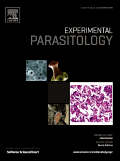
EXPERIMENTAL PARASITOLOGY
Scope & Guideline
Innovative Research Driving Solutions in Parasitic Infections
Introduction
Aims and Scopes
- Parasitology Research:
The journal publishes research that explores various aspects of parasitic organisms, including their biology, life cycles, and interactions with hosts, which are crucial for developing effective control strategies. - Drug Discovery and Development:
A significant focus is on discovering and developing new pharmaceutical agents against parasitic infections, including evaluating the efficacy of existing drugs and exploring novel compounds through in vitro and in vivo studies. - Host-Parasite Interactions:
Research examining the immunological and pathological responses of hosts to parasitic infections is a core area, contributing to a better understanding of disease mechanisms and potential therapeutic targets. - Epidemiology and Control Strategies:
The journal covers epidemiological studies that provide insights into the spread and control of parasitic diseases, aiming to inform public health strategies and develop new methods for disease management. - Biotechnology and Molecular Approaches:
Innovative biotechnological tools, including genetic and molecular techniques, are emphasized for studying parasitic organisms and developing new diagnostic and therapeutic methods.
Trending and Emerging
- Nanotechnology in Antiparasitic Research:
There is a growing trend towards utilizing nanotechnology to enhance the delivery and efficacy of antiparasitic agents, showcasing innovative approaches to drug development. - Microbiome and Parasitism:
Research exploring the interactions between host microbiomes and parasitic infections is gaining traction, highlighting the importance of understanding these complex relationships for disease management. - Immunotherapy and Vaccine Development:
There is an increasing focus on immunotherapeutic strategies and the development of vaccines against parasitic diseases, driven by the need for effective prevention and treatment options. - Molecular and Genomic Approaches:
The use of advanced molecular and genomic techniques to study parasite biology and host interactions is on the rise, providing deeper insights into the mechanisms of parasitic diseases. - Eco-Epidemiology:
Studies examining the ecological factors influencing the distribution and transmission of parasitic diseases are becoming more prevalent, reflecting a shift towards a holistic understanding of parasitology.
Declining or Waning
- Traditional Antiparasitic Agents:
Research centered on traditional antiparasitic drugs is decreasing, likely due to the rise of drug resistance and the need for novel therapeutic strategies that are more effective against resistant strains. - Basic Taxonomic Studies:
There has been a notable decline in the publication of papers focused solely on the taxonomy of parasites, as the field shifts towards functional studies that integrate molecular data and ecological impacts. - In Vitro Cultivation Techniques:
The frequency of studies dedicated to classical in vitro cultivation methods for parasites has waned, possibly due to the emergence of advanced methodologies that provide more relevant data on host interactions and drug responses. - Invasive Species Studies:
Research specifically addressing the impacts of invasive parasitic species appears to be less prominent, as the focus broadens to include broader ecological and environmental impacts of parasitism.
Similar Journals
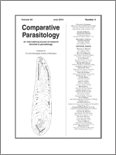
Comparative Parasitology
Fostering Interdisciplinary Insights in ParasitologyComparative Parasitology, published by the Helminthological Society of Washington, serves as a vital platform for the dissemination of innovative research in the fields of parasitology, ecology, and evolution. With an ISSN of 1525-2647 and an E-ISSN of 1938-2952, this journal has charted a course of academic influence since its inception in 1996, and is set to continue until 2024. Although it currently holds a Q4 ranking in both Ecology, Evolution, Behavior and Systematics and Parasitology categories, it guarantees significant contributions and diverse studies, providing an essential resource for researchers and practitioners in these domains. Located in the United States and managed by Allen Press Inc, Comparative Parasitology emphasizes open access, ensuring that vital research findings are readily available to the global community. The journal remains dedicated to fostering an understanding of the complexities of host-parasite interactions and promoting interdisciplinary collaboration, making it a crucial resource for students and professionals alike.

ACTA TROPICA
Fostering Innovation in Veterinary and Parasitological StudiesACTA TROPICA is a prestigious academic journal published by Elsevier, dedicated to advancing knowledge in the fields of Infectious Diseases, Insect Science, Parasitology, and Veterinary sciences. With an ISSN of 0001-706X and an E-ISSN of 1873-6254, it has established itself as a vital resource since its inception in 1945. The journal is recognized for its significant impact within the scientific community, boasting a Q2 ranking in Infectious Diseases and Parasitology, and a Q1 ranking in both Insect Science and Veterinary (miscellaneous) categories as of 2023. Specifically, it ranks #19 in Scopus for Parasitology and #129 for Infectious Diseases, underscoring its high visibility and relevance in these vital research arenas. ACTA TROPICA is a non-open access journal, ensuring high-quality peer-reviewed content that complements ongoing research and professional practices among scientists, researchers, and students. Explore groundbreaking studies and contribute to the ongoing dialogue within your field by selecting ACTA TROPICA as your next publication destination.
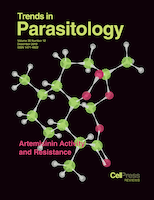
TRENDS IN PARASITOLOGY
Bridging knowledge gaps in infectious disease science.TRENDS IN PARASITOLOGY is a premier academic journal published by CELL PRESS, focusing on the dynamic field of parasitology and infectious diseases. With an ISSN of 1471-4922, this esteemed journal is recognized for its high impact within the research community, boasting a Q1 ranking in both the Infectious Diseases and Parasitology categories as of 2023. This places it among the top-tier journals in the field, as evidenced by its remarkable Scopus rankings, where it ranks #3 out of 79 in Parasitology and #29 out of 344 in Infectious Diseases. Spanning over two decades of scholarly contributions from 2001 to 2024, TRENDS IN PARASITOLOGY emphasizes the latest advancements, challenges, and innovative methodologies in parasitology, making it an invaluable resource for researchers, healthcare professionals, and students alike. With an increasing focus on open access initiatives, this journal not only promotes widespread dissemination of knowledge but also encourages collaboration across the global scientific community. Whether you are investigating novel interventions, exploring parasite evolution, or understanding host-pathogen interactions, TRENDS IN PARASITOLOGY remains at the forefront of research, driving forward the understanding of parasitic diseases.

INFECTION AND IMMUNITY
Empowering Researchers with Cutting-Edge DiscoveriesINFECTION AND IMMUNITY is a distinguished peer-reviewed journal published by the American Society for Microbiology, focusing on groundbreaking research in the fields of infection, immunology, microbiology, and parasitology. Established in 1971, this journal has built a robust legacy, converging years of scientific discovery with a vision towards 2024 and beyond. With an impressive Impact Factor, the journal holds significant rankings in various categories; its Q1 status in both Infectious Diseases and Parasitology underscores its high relevance and quality within the scientific community. Researchers and professionals alike will benefit from its content, as it promotes the latest advances in understanding immune responses and infectious agents, further legitimizing its place among the top quartiles of its respective fields. Access options are provided through traditional subscription models, ensuring a broad charitable dissemination of knowledge. As a pivotal resource for scholars and practitioners alike, INFECTION AND IMMUNITY stands at the forefront of microbiological and immunological research, fostering essential discourse that is crucial for advancing public health and scientific insight.

KOREAN JOURNAL OF PARASITOLOGY
Fostering Collaboration in Parasitic Disease ResearchKorean Journal of Parasitology is a respected publication in the field of parasitology, originating from the esteemed Korean Society of Parasitology and affiliated with Seoul National University College of Medicine. Established in 1977, this journal focuses on disseminating significant research findings related to parasitic diseases, their vectors, and control measures, serving as a vital resource for researchers, medical professionals, and students alike. Although coverage in Scopus has been discontinued as of 2022, the journal remains a valuable platform for in-depth studies within the areas of Infectious Diseases and Immunology. With an ISSN of 0023-4001 and an E-ISSN of 1738-0006, the journal promotes open access to enhance academic sharing. Despite its current Scopus rankings, which place it in the 38th percentile for Infectious Diseases and 37th percentile for Immunology and Microbiology (Parasitology), it continues to contribute to the global discourse on parasitological research, encouraging collaboration and emphasizing the importance of this field in public health.
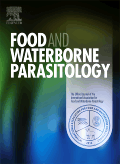
Food and Waterborne Parasitology
Unveiling the Impact of Parasites on Public HealthFood and Waterborne Parasitology is a premier open-access journal published by ELSEVIER, dedicated to the critical study of parasites affecting food and water safety. Since its inception in 2015, the journal has significantly contributed to research in the fields of epidemiology, food science, and parasitology, achieving impressive rankings in its categories with a Q1 status in Food Science and a Q2 in both Epidemiology and Parasitology as of 2023. Addressed from RADARWEG 29, 1043 NX Amsterdam, Netherlands, it garners attention for its accessible content, aiming to elevate the understanding of the impact of parasitic organisms on public health and food security. With its open-access model, the journal enhances visibility and dissemination of research findings, fostering collaboration and innovation among researchers, professionals, and students alike. By bridging scientific inquiry with practical applications, Food and Waterborne Parasitology plays a pivotal role in addressing global health challenges and advancing knowledge in this vital area of study.

SYSTEMATIC PARASITOLOGY
Navigating the evolving landscape of parasitology.SYSTEMATIC PARASITOLOGY, a premier academic journal published by Springer, serves as a vital resource in the field of parasitology. Since its inception in 1979, this journal has committed itself to advancing the understanding of parasitic organisms and their interactions with hosts, thus playing a significant role in both basic and applied research. With an impactful contribution to the scientific community—evidenced by its Scopus ranking and its position in the third quartile (Q3) within the Parasitology category—the journal provides a platform for high-quality, peer-reviewed research that spans a variety of topics from molecular biology to ecology. Although not currently open access, SYSTEMATIC PARASITOLOGY remains essential for researchers, professionals, and students who seek to stay at the forefront of parasitological studies and contribute to ongoing developments in the domain. Published in the Netherlands, it continues to attract a diverse international readership, fostering a collaborative scientific environment.
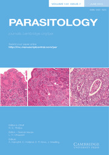
PARASITOLOGY
Pioneering research for a healthier tomorrow.PARASITOLOGY, published by Cambridge University Press, is a prestigious journal that has been at the forefront of research in the field of parasitology since its inception in 1908. This esteemed publication carries the ISSN 0031-1820 and E-ISSN 1469-8161, and its rigorous peer-reviewed articles provide insights into both fundamental and applied aspects of parasitic biology, infectious diseases, and host-parasite interactions. With a commendable impact factor, PARASITOLOGY ranks in the top quartile (Q1) for Animal Science and Zoology and holds Q2 rankings in both Infectious Diseases and Parasitology categories, indicating its significant influence and contribution to these disciplines. The journal's diverse scope allows for a broad range of research articles, reviews, and case studies, making it an essential resource for researchers, professionals, and students seeking to stay updated on the latest developments in the field. Based in the United Kingdom, PARASITOLOGY offers valuable access to critical research in an era where understanding parasitic diseases is more vital than ever, and continues to shape the future of this important scientific field.

REVISTA BRASILEIRA DE PARASITOLOGIA VETERINARIA
Advancing Veterinary Health Through Innovative Parasitology ResearchThe REVISTA BRASILEIRA DE PARASITOLOGIA VETERINARIA, published by the BRAZILIAN COLLEGE OF VETERINARY PARASITOLOGY, serves as a premier platform for disseminating groundbreaking research and advancements in the field of veterinary parasitology. Since its transition to Open Access in 2007, the journal has significantly contributed to fostering global collaboration and knowledge sharing among researchers and practitioners. Situated in Brazil, this esteemed journal features a diverse range of studies focused on the latest developments and challenges in veterinary and parasitological sciences. With a commendable Q3 ranking in Parasitology and Q2 ranking in Veterinary (miscellaneous) for 2023, it is recognized for its growing impact in the academic community, particularly holding positions in the 60th percentile for General Veterinary and 37th percentile in Parasitology. Researchers, professionals, and students interested in enriching their understanding of veterinary parasitology will find this journal a vital resource, as it bridges regional expertise with global research trends, thus embracing a holistic approach to veterinary health.
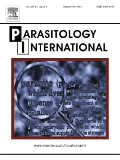
PARASITOLOGY INTERNATIONAL
Exploring the Frontiers of Infectious DiseasesParasitology International, published by Elsevier Ireland Ltd, is a leading journal in the field of parasitology and infectious diseases. With its ISSN 1383-5769 and E-ISSN 1873-0329, this esteemed journal provides a platform for the dissemination of high-quality research covering various aspects of parasitic diseases and their treatment. Recognized for its rigorous peer-review process, Parasitology International currently holds a commendable Q2 ranking in both the Infectious Diseases and Parasitology categories for 2023. The journal's Scopus rankings further enhance its reputation, positioning it at Rank #33/79 in Parasitology and Rank #166/344 in Infectious Diseases. Covering a broad range of topics from host-parasite interactions to novel treatments, this journal plays a pivotal role in advancing knowledge and fostering innovation within the research community. Though it does not currently operate as an open access journal, it continues to attract contributions from leading experts around the world, making it an invaluable resource for researchers, professionals, and students committed to understanding and combating parasitic diseases.